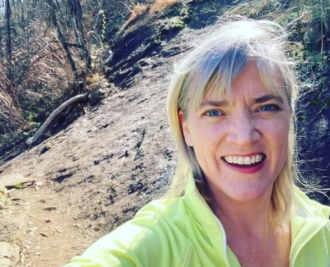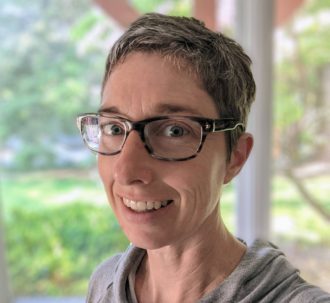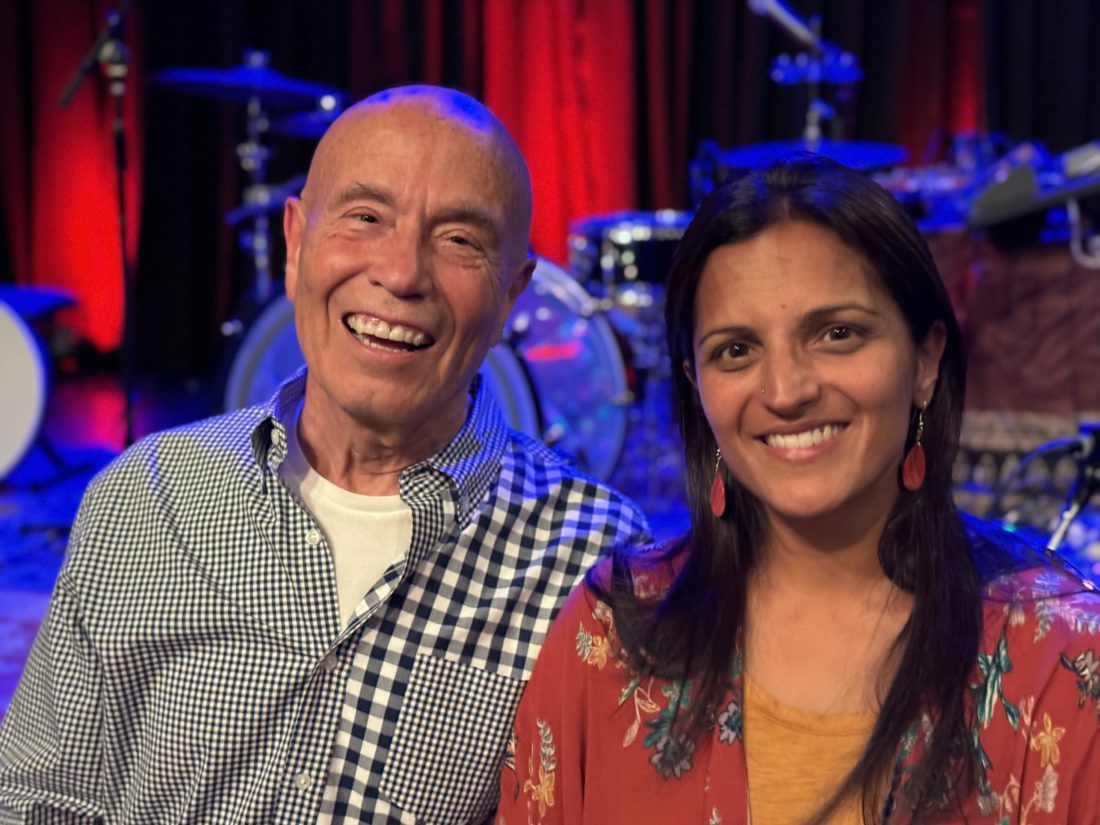When Elizabeth Barbour miscarried twins in 2010 — children she and her husband very much wanted — she spent the next week cloistered in grief.
A week later, the city where they lived happened to host a candlelight vigil for families impacted by pregnancy loss. “I hadn’t even left the house because I was so devastated,” she recalls. “But we went to this event at a lake. Everybody was given a candle, and you walked around the lake. We were out there walking with hundreds of people.”
Barbour’s voice breaks as she recounts that walk. “Just being part of that vigil with other people who understood this pain was so healing,” she says.
Rituals like the pregnancy loss vigil inspired Barbour to help others who are preparing for impending deaths — their own or others’ — and processing grief. As an intuitive life coach, she helps people create “sacred celebrations” for life passages, including the biggest of all, death.
Local experts say as more baby boomers are aging, they are more curious about thoughtful planning for death, such as eco-conscious burials. They also say the COVID-19 pandemic spurred interest in talking about death because many people did not have control over the circumstances of their deaths, and their loved ones felt helpless in the face of that fact.
Barbour is one of several people in the Asheville area who are now reimagining our societal script regarding death. Approaching death as a sacred passage — which is how many of them define their work — draws from the spiritual, medical and psychological realms, and attracts individuals from all different professions and experiences.

A beautiful place to die
Western North Carolina is home to the nonprofit Center for Conscious Living and Dying, a nondenominational, community-supported comfort care facility in Swannanoa that will open officially in 2024. It will be the only community home for dying people in North Carolina.
Community-supported comfort care is a model that’s unfamiliar to many people, explains CCLD’s founder and executive director, Aditi Sethi of Black Mountain. She previously worked for AMOREM, a hospice in Valdese, and CarePartners Hospice Solace Center in Asheville.
Traditionally, if they are lucky, people die in hospitals, hospice or their own homes. Some experiences can range from somber to clinical to scary, and death is often treated as a tragedy instead of the natural completion of a cycle. For this reason, death can be “an innate fear that we have because it’s so mysterious and we don’t talk about it,” says Sethi.
But as a palliative care and hospice physician and an end-of-life doula, Sethi witnessed the glimmer of an alternative. She saw firsthand how when the community provided end-of-life comfort and let the dying person be surrounded by loved ones, it fostered a gentler and more meaningful passing experience for everyone involved. This is the model for CCLD: Volunteers will provide 24/7 comfort support in the form of nonmedical end-of-life care, including preparing food and doing laundry. This allows family and friends to focus on loving up the dying individual instead of taking on the roles of caregivers.
CCLD is not a hospice, nor does it employ hospice workers, but such workers can provide their services at the center when hired by the patient. The center is part of the Omega Home Network, a national nonprofit that supports community homes for dying people. North Carolina’s caregiving regulations guide CCLD’s legal parameters.
The center has three bedrooms called “transition rooms,” tranquil spaces where people who have two months or less to live may stay. The transition rooms, plus a kitchen, library, living room, Sethi’s office and other bedrooms for guests, are located inside a 5,500-square-foot former residence on 6.5 acres overlooking the Warren Wilson College campus.
The center’s Blue Ridge Mountain landscape gives CCLD “a heaven on Earth quality,” says real estate developer David Case of Asheville. His role as “abundance magician” for CCLD means garnering resources, including helping to raise $1.9 million from “large donors in short order” to purchase the residence last year. (Case’s limited liability company owns the center.)
CCLD relies heavily on donations, its founders say. However, it also plans to generate revenue through hosting an end-of-life doula training program.
Volunteers and CCLD’s small staff are drawn to the group’s mission for many reasons, including the “desire to be of service and desire for community, in combination with increased interest in death and fear of death,” Sethi says. “And being tired of being afraid of death.”
Two people have already died at CCLD, including Ethan Sisser. Sisser and Sethi both appear in The Last Ecstatic Days, a documentary about Sisser’s intention to die from brain cancer without fear and surrounded by a community.
Death as a process
The end of life is often treated as a static event, rather than a process that could take days, months or even years. In January, Keaton Hill, an elder at Grace Covenant Presbyterian Church, will begin hosting a church group called Life in Death Practice Group to support this transition for anyone at any stage of life.

Hill’s approach toward death is grounded in her faith. “Birth is not what life is, and I don’t think our expiration is what death is,” she says. “We’re all dying. Some of us might want to be doing it more mindfully and with more intention.”
Her interest in starting this group at Grace Covenant stems from being in a stage of life where people she knows are aging and dying, Hill says. She’s also the parent of teenagers who are growing more independent, and she says that’s teaching her other valuable lessons about seasons of change. “The holding on and the grasping is actually what causes me pain,” she explains. “Letting go is very scary, and loss is very scary. But holding on is where I find there to be more pain than fear.”
The Grace Covenant group will meet weekly through the Epiphany season, until Ash Wednesday. Hill says practices could include rituals like walking meditations where the individual says the mantra “I am going to die” or giving a cherished object away to someone else.
The goal, she says, will be to try “different ways where we intentionally let go, so that when life forces us, we’re just a little more practiced.”
Good grief
The COVID-19 pandemic meant “it was no longer pathological to talk about grief,” explains Amy Wright Glenn, who is a death doula, chaplain and founder and director of The Institute for the Study of Birth, Breath and Death. The pandemic brought death and grief into the public sphere in new ways. Previously, grief was treated “like an illness that you’re supposed to get over, like a cold.”
Adds Barbour, the life coach, “We live in this culture of ‘you get three days of bereavement leave and then you have to get back to work.’ That’s insane.”
Holding space, which Glenn defines as “the practice of bringing compassionate presence to what is,” is essential to working as a death doula, she says. But she notes that holding space doesn’t only mean being present for someone’s sorrow or grief. It can also mean acknowledging the “joy and wonder” of a life well lived or a death well done. (Glenn is the author of Holding Space: On Loving, Dying and Letting Go, published in 2017.)
Ultimately, experts who work with death as a sacred passage want to walk beside those who are dying and the bereaved. As Barbour says, “Having someone say, ‘I see you, I hear you, I’m so sorry for your pain’ — that can just make all the difference.”



Beautiful, beautiful, beautiful! The best news article Xpress has posted. Thanks Center for Conscious Living and Dying, and to Xpress. Bless.
I am a volunteer at CCLD (and a Hospice RN by trade) and these folks are the real deal – So much love and honoring at the events – fantastic nurturing at such a fundamental level. What a gifted, talented group! (and everyone who is a part of it). Grateful!